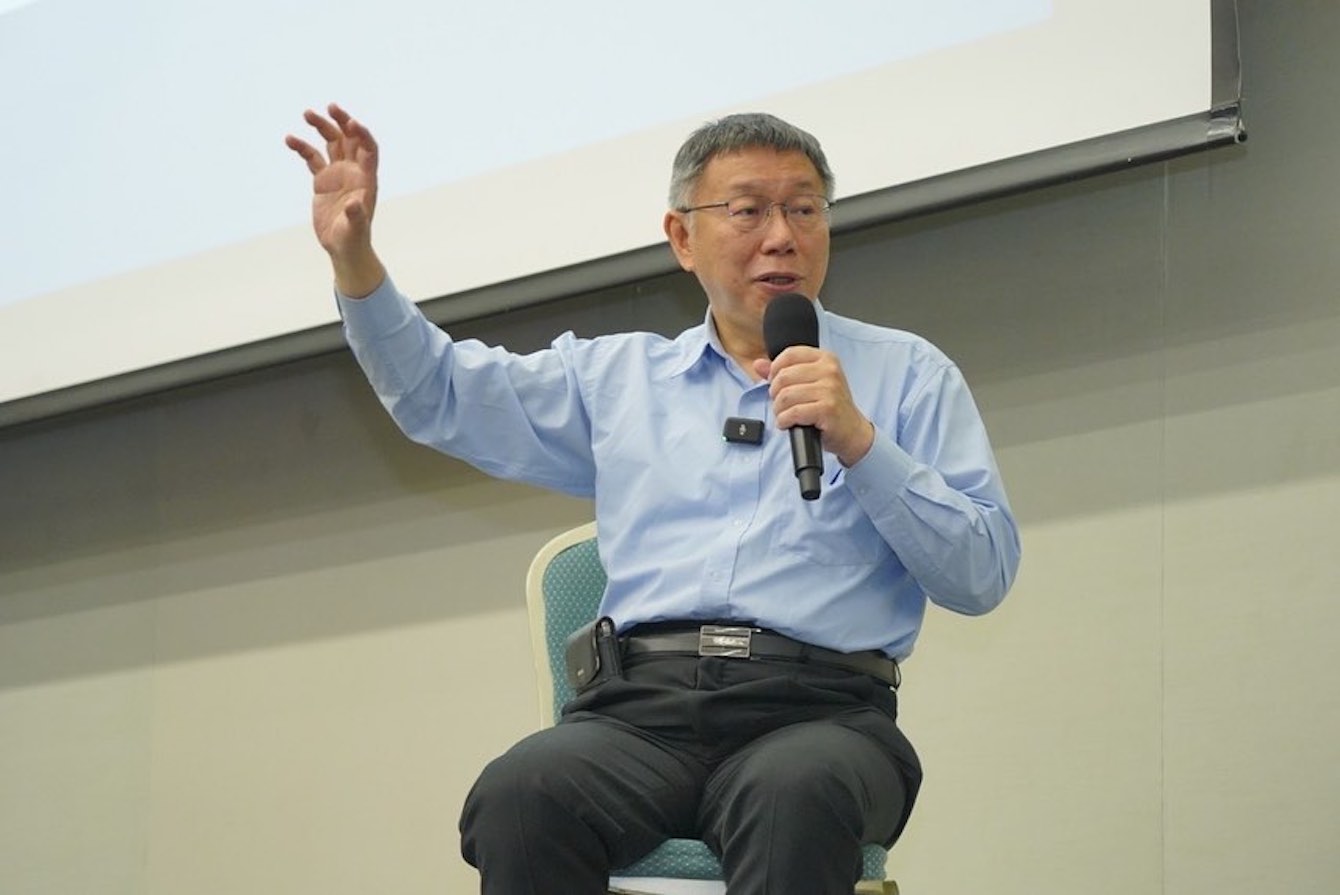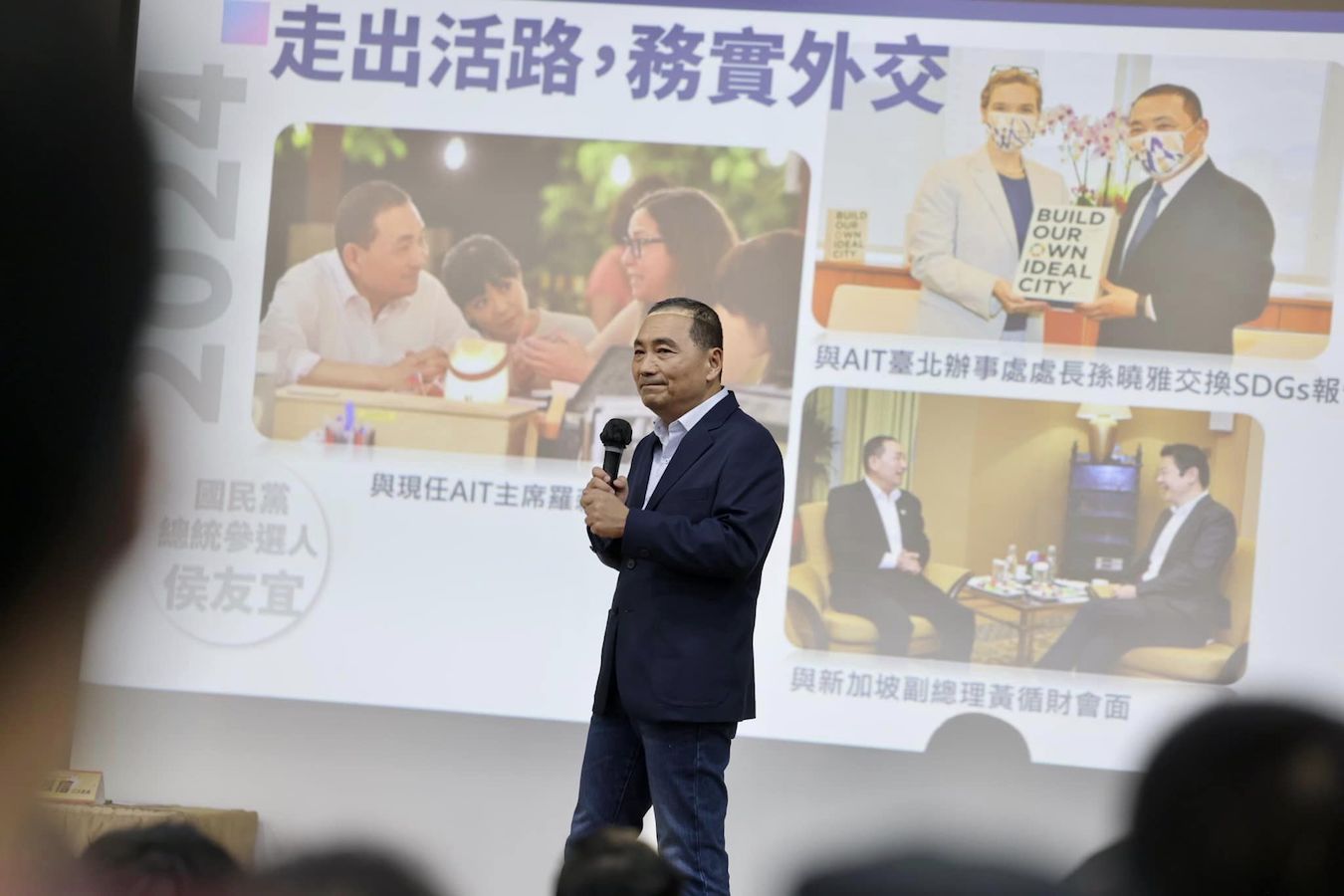by Brian Hioe
語言:
English
Photo Credit: Ko Wen-je/Facebook
IN A SURPRISE, former Taipei mayor Ko Wen-je, who is the presidential candidate of the TPP, has expressed support for passing the Cross-Strait Services Trade Agreement (CSSTA). Since this came to light, the KMT and presidential candidate Hou You-yi has also come out in support of reviving the CSSTA, though the KMT would be playing catch-up with Ko.
The CSSTA, which recently reached the ten-year anniversary of its signing in 2013, was the precipitating cause of the 2014 Sunflower Movement. The Sunflower Movement involved the month-long occupation of the Taiwanese legislature over fears regarding the CSSTA’s potential impact on political freedoms in Taiwan.
Namely, the CSSTA would have allowed for Chinese investment in Taiwan’s service sector. As this is thought to be more than 70% of the economy, the impact could be substantial, particularly if businesses began to self-censor to cater to Chinese political views. The years prior to the Sunflower Movement had already seen Taiwanese media outlets censor critical views of China after being purchased by pro-China Taiwanese conglomerates, which contributed to such fears.
 Former Taipei mayor and TPP presidential candidate Ko Wen-je. Photo credit: Ko Wen-je/Facebook
Former Taipei mayor and TPP presidential candidate Ko Wen-je. Photo credit: Ko Wen-je/Facebook
But, to this extent, the CSSTA was seen as an attempt of the then-ruling Ma administration to facilitate closer political ties between Taiwan and China through economic engagement, as part of its pro-unification agenda. Indeed, another triggering cause for the Sunflower Movement was that the Ma administration and KMT-controlled legislature circumvented legislative committee oversight measures to ram the bill through the measure. This raised shades of Taiwan’s authoritarian past, given that the KMT formerly ruled over Taiwan in a one-party fashion during the authoritarian period and in 2014 was termed the “black box” means by which the KMT passed the agreement in a manner lacking transparency.
The shift in position on Ko’s part is ironic. Ko initially came to power in 2014 with the support of post-Sunflower Movement activists. At the time, Ko framed himself as a candidate beyond traditional pan-Green and pan-Blue divisions, but enjoyed the endorsement of the DPP in 2014–the DPP did not run its own candidate for Taipei mayor and instead endorsed Ko. Yet now Ko has moved to back the CSSTA.
Relations between Ko and the pan-Green camp soured in the wake of city-based exchanges conducted between Taipei and Shanghai under Ko’s auspices. As part of these exchanges, Taiwan was framed as part of China, and Ko referred to Taiwan and China as one family on both sides of the Taiwan Straits that share a common destiny. An incident in which pro-independence student demonstrators on the campus of National Taiwan University were attacked by pro-unification gangsters during an event conducted as part of the city-based exchanges led to criticisms of Ko from the pan-Blue camp. Consequently, the DPP ran its own candidate in 2018 rather than endorse Ko.
Nevertheless, Ko suggesting that he would back the CSSTA indicates to what extent views among the pan-Blue camp have shifted. Given his present alignments, Ko is now perceived as more broadly aligned with the pan-Blue camp, rather than the pan-Green camp. This view is contributed to by the fact that the majority of the candidates for the TPP, which he formed to back his 2024 presidential run, have pan-Blue backgrounds. Even so, Ko and the TPP have still usually framed themselves as “lighter blue” and less ideologically hardline than the KMT.
However, at this point, the Ma administration is now remembered as a high point for the KMT, rather than a period that led to significant protest. Moreover, in a time of rising tensions with China and regular Chinese military exercises directed at Taiwan, the pan-Blue camp frames the choice between it and the pan-Green camp as a choice between war and peace. To this extent, the pan-Blue camp positions economic engagement as the solution that will ward off Chinese military threats, while suggesting that the DPP is irrationally opposed to economic or otherwise engagement with China in a manner that provokes Chinese military threats.
 New Taipei mayor and KMT presidential candidate Hou You-yi. Photo credit: Hou You-yi/Facebook
New Taipei mayor and KMT presidential candidate Hou You-yi. Photo credit: Hou You-yi/Facebook
Ko embracing the CSSTA pushed the KMT to do the same. Seeing as Ko and the TPP are read as “lighter blue,” all the more pressure on the KMT and its presidential candidate Hou You-yi to embrace the CSSTA, if only to distinguish themselves from Ko. Nevertheless, this perhaps illustrates to what extent the KMT and Hou is playing catch-up with regards to Ko, and allowing Ko to set the tone of the present pan-Blue political conversation. In taking a strong pro-China line, Ko may be angling for Chinese support over the KMT.
Ko’s change in position is framed sometimes as having claimed to only have opposed the CSSTA over the “black box” means by which it was passed, but not the bill itself. In seeking to distinguish his position from Ko’s, Hou You-yi has attacked Ko for seeking to block the CSSTA in 2014.
It is to be seen how the Taiwanese public reacts against this reversal from Ko, given that how the CSSTA registers in the present may be different than in 2014–though one notes that in 2014, the CSSTA was merely one of many triggers that could have potentially led to the outbreak of a movement against the Ma administration. With speculation that Ko could align with streamer and commentator Holger Chen and former NPP chair Huang Kuo-chang for the upcoming elections, Huang’s reputation as one of the leading Sunflower Movement activists could bolster Ko’s claims to not be uncritically pro-China. Although Chen and Huang plan to hold a rally on Ketagalan Boulevard on July 16th with the theme of “saving Taiwan,” their stance on Ko, the TPP, and the CSSTA remains unclear.

